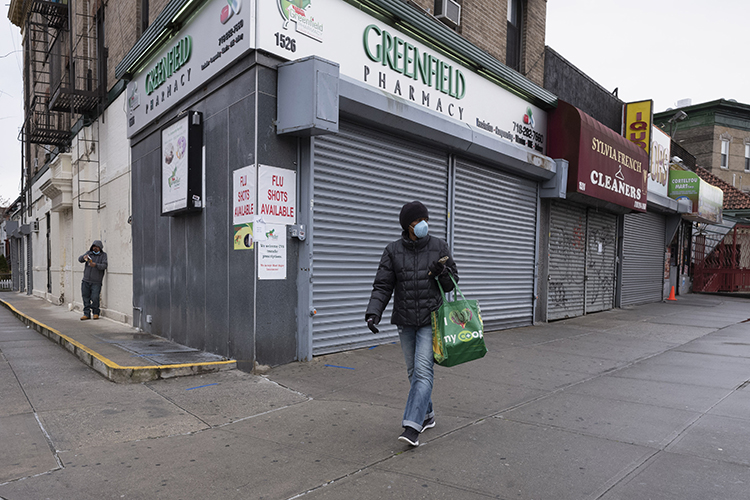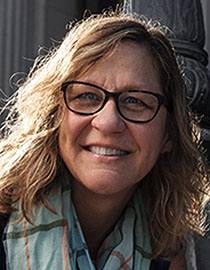Economic fix: Deliver aid to as many as possible — fast

Congress and President Donald Trump have approved a gargantuan $2 trillion stimulus package to protect businesses, workers and the economy, but UC Berkeley economist Hilary Hoynes says the next step may be more difficult: administering the relief programs so that government funds get to vulnerable Americans as fast as possible.

The Coronavirus Aid, Relief and Economic Security (CARES) Act approved in Washington, D.C., “is a good, modest relief measure,” Hoynes said in an interview with Berkeley’s Goldman School of Public Policy.
Its $1,200 cash payments for individuals ($2,400 for couples), plus support for both small business and corporations, will provide at least some relief for people struggling to pay bills or keep their businesses solvent during the economic shutdown caused by the COVID-19 health crisis. But tens of millions of Americans who need the relief urgently can’t afford to wait, she said, and that means the gears of the government administration must turn as efficiently as possible in a time of unprecedented challenge.
“What we know is really important, now more than ever, is the speed at which we distribute the assistance,” Hoynes said. “It doesn’t do much good if it takes six months, because the crisis is happening now. … We should think about how we can streamline hassles to make the current benefits get out to as many people as possible.”
A growing number of U.S. political and economic leaders are already imagining the contours of an additional new stimulus package. Hoynes recommended that a potentially valuable focus could be on food stamps, formally known as the Supplemental Nutrition Assistance Program (SNAP).
“SNAP is very targeted,” she said. “Benefits are distributed to those who most need assistance and who tend to spend the benefit right away. In addition, food is one of the few things that everyone is buying right now, even though they are not doing much of anything else.”
Hoynes is a professor of public policy and economics and the Haas Distinguished Chair in Economic Disparities; she is also co-director of the Berkeley Opportunity Lab. She is an expert on the impacts of government tax and transfer programs on low-income families, poverty, inequality, and food and nutrition programs.
Her economic insight has made her an influential figure in a state and a country looking to protect and expand opportunities for low- and middle-income families. She has been named one of 13 members of California Gov. Gavin Newsom’s new Council of Economic Advisors.
More recently, she was featured in Knowable Magazine, where she discussed the potential impact of policies that would establish a universal basic income for Americans.
